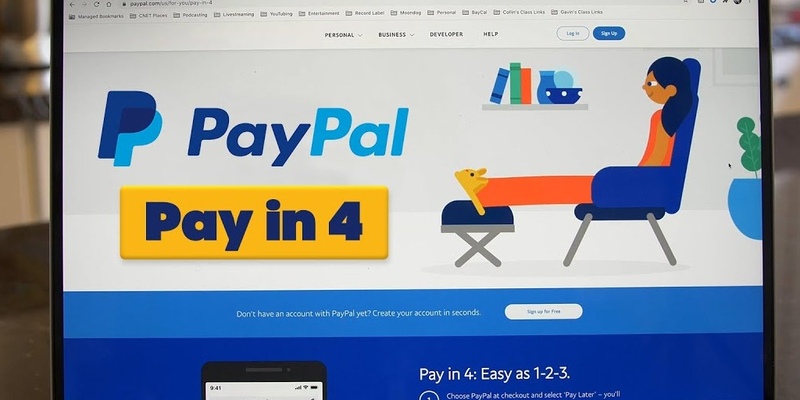Early withdrawals from an Individual Retirement Account (IRA) typically incur a 10% penalty if taken before the age of 59. However, life circumstances sometimes necessitate accessing these funds earlier. Understanding the specific exceptions that allow for penalty-free withdrawals can provide significant financial relief in times of need.
This guide details the different situations in which you're allowed to withdraw funds from your IRA without incurring the early withdrawal penalty. It helps you make informed decisions while safeguarding your financial future.
Ways to Avoid the Early Withdrawal Penalty from Your IRA
Making an early withdrawal from your IRA without paying the fee can be tricky, but it's possible under certain circumstances. Here are some ways you might be able to avoid the early withdrawal penalty:
First-Time Home Purchase
If youre buying your first home, the IRS allows you to withdraw up to $10,000 from your IRA penalty-free. The term "first-time homebuyer" includes not only you but also your spouse, children, grandchildren, or parents. To qualify, neither you nor your spouse must have owned a home during the two years prior to the purchase. This $10,000 limit is a lifetime cap, meaning you cant take out multiple $10,000 distributions for separate home purchases.
Education Expenses
You can use IRA funds to pay for qualified higher education expenses for yourself, your spouse, children, or grandchildren without incurring the 10% penalty. Qualified expenses include tuition, fees, books, supplies, and equipment required for enrollment or attendance at an eligible educational institution. Room and board expenses are also covered if the student is enrolled at least half-time.
Eligible institutions include colleges, universities, vocational schools, and other post-secondary institutions eligible to participate in a student aid program administered by the U.S. Department of Education.
Medical Expenses

If you have significant unreimbursed medical expenses that exceed 7.5% of your adjusted gross income (AGI), you can withdraw funds from your IRA without facing penalties to cover these expenses. Qualified medical expenses include those that would generally be deductible on your tax return, such as doctor visits, surgeries, and prescription medications. It's crucial to maintain records of all medical expenses and ensure they meet the IRS criteria for qualification.
Health Insurance Premiums
Suppose you lose your job and receive unemployment compensation for 12 consecutive weeks. In that case, you can withdraw funds from your IRA to pay health insurance premiums for yourself, your spouse, and your dependents without incurring the early withdrawal penalty.
This exception applies if the distributions are taken in the same year as the unemployment compensation or the following year, and you do not become re-employed during that period. Proper documentation of unemployment and health insurance expenses is necessary.
Disability
If you become totally and permanently disabled, you can withdraw funds from your IRA without the 10% early withdrawal penalty. To qualify, you typically need to provide documentation of your disability, often a physician's statement confirming that you cannot work at a job that pays enough due to a physical or mental condition.
This impairment must be expected to last for a long, indefinite duration. This exception allows you to access necessary funds during a challenging time without facing additional financial penalties. Top of FormBottom of Form
Substantially Equal Periodic Payments (SEPP)
Establishing a SEPP plan enables you to withdraw funds from your IRA without incurring penalties, calculated according to your life expectancy or the joint life expectancy of you and a beneficiary. The IRS provides three methods to calculate these payments: the required minimum distribution method, the fixed amortization method, and the fixed annuitization method.
Once you start SEPP, you must continue the withdrawals for at least five years or until you turn 59, whichever is longer. Changing or stopping the payments before this period ends can result in retroactive penalties and interest.
Death
If you pass away, your IRA can be transferred to your beneficiaries without the 10% early withdrawal penalty. Beneficiaries can either withdraw the entire amount or transfer it into an inherited IRA, allowing for distributions over their lifetime. While these distributions will still be subject to income tax, they won't incur the early withdrawal penalty, providing flexibility for your heirs in managing the inherited funds.
Qualified Birth or Adoption

The SECURE Act of 2019 introduced a new exception allowing up to $5,000 to be withdrawn penalty-free from an IRA for expenses related to a child's birth or adoption. Each parent can withdraw $5,000, totaling $10,000 per child. The distribution must occur within one year of the birth or adoption, and the funds can be utilized for various related expenses, including medical bills, legal fees, and baby supplies.
IRS Levy
If the IRS levies your IRA to satisfy a tax debt, the withdrawn funds are exempt from the 10% early withdrawal penalty, though regular income tax still applies. This exception is valid only when the IRS directly levies the account. Voluntary payments from your IRA to the IRS do not qualify for this exemption. It's essential to ensure the levy is directly imposed by the IRS to avoid penalties while fulfilling tax obligations.
Rollover to Another IRA
To avoid the early withdrawal penalty, you can roll over your IRA funds to another IRA or a qualified retirement plan within 60 days of the distribution. This option is available once every 12 months for each IRA account. Ensure the rollover is completed within the 60-day window to avoid penalties. Proper timing is crucial to take advantage of this opportunity, so plan carefully and execute the rollover promptly to stay penalty-free.
Conclusion
Several specific exceptions allow you to access your IRA funds before retirement age without incurring penalties. These exceptions provide valuable flexibility whether you're purchasing your first home, covering higher education expenses, handling significant medical bills, or managing unexpected life events like disability or unemployment.
Always maintain thorough documentation and consider consulting a financial advisor to navigate these withdrawals correctly. By leveraging these penalty-free options wisely, you can address immediate financial needs while minimizing the impact on your long-term retirement savings.

All You Should Know About PayPal Pay in 4

How to Calculate Property Taxes

USDA Home Loans: Everything You Need to Know

A Comprehensive Guide for Capital Gains Tax Exclusion for Primary Residences

Explaining the Mechanics: Insights into Working and Premium Determinants

Understanding the Role and Responsibilities of a Lessee

What Is the Average Profit Margin for a Company in the Banking Sector?

Ways To Report 1099-MISC Box 3 Payments on Your 1040 for Tax Year

How to Pay Your Property Tax Bill

Unveiling the Essentials of Comprehensive Car Insurance

Chapter 13 Bankruptcy Explained: A Comprehensive Guide
